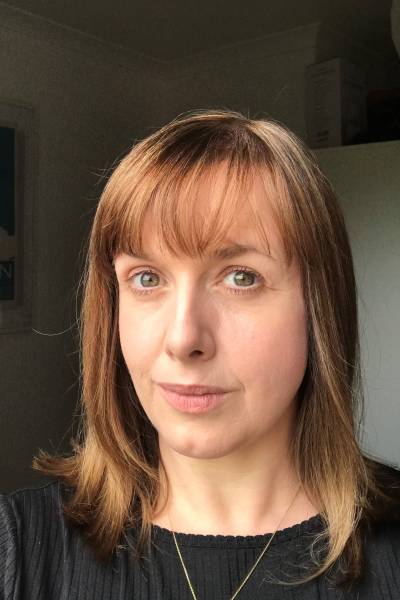Dr Sinéad Harmey is an Associate Professor in Literacy Education in the Department of Learning and Leadership and works with IOE's International Literacy Centre.
What attracted you to take up your position at IOE?
I was a former student at IOE in 2007, where I trained to become a Reading Recovery Teacher Leader.
When I had the opportunity to apply for a job at IOE, I jumped at it because I knew I would have the opportunity to work with a range of scholars and practitioners with diverse interests in literacy teaching and learning.
How long have you been at IOE?
6 years.
What do you most enjoy about your position and why?
I enjoy the mix of work – no week is the same, and I am constantly learning from the people I work with.
I get to collaborate in research projects with a diverse range of colleagues. I teach at Master's and Doctoral levels and enjoy supporting students as they engage in their own research and develop their own ideas.
“I also have opportunities to travel to and work with literacy leaders and practitioners in diverse contexts from here in London, to Ireland, Malta, and Scotland.
What working achievement or initiative are you most proud of?
I am most proud of my first co-edited book that I published recently with UCL Press. The book is titled ‘Teaching Literacies in Diverse Contexts’.
My colleague Bobbie Kabuto, Dean of Education at Queens College, City University of New York, and I brought together a range of authors from across Europe and the United States. It explores how reading is taught in diverse settings – like the experiences of parents of children in hospitals, pupils in rural South Africa, and the accounts of volunteers and student teachers.
The added bonus is that because we published with UCL Press; it is open access and available to all.
What is the focus of your research and what benefits do you hope your discoveries and/or insights will bring?
My research has been built around: (a) my interests in early writing and support for literacy learning in the early years and (b) my interests in supporting evidence-based practice and the role of knowledge exchange in this, with a specific focus on review methodologies.
“In practice, this means my research is focused on describing early writing development and supporting teachers to support young writers.
I also have become interested in the use of review methodologies to think about supporting translating research to practice (and vice-versa). I have conducted reviews as parts of teams on projects funded by UKRI, ETF, EEF, and the Froebel Trust.
What's the most important thing you've learned from your students about the subjects you teach?
The most important thing I have learned is that we are always learning and that there is always room to know more and do better for children who are learning to read and write.
Do you think being in London and at UCL benefits your work and why?
UCL is based in a busy but beautiful part of London, and there is great energy when you come onto campus.
“Being part of UCL means that I can network with a wide range of colleagues from many disciplines and have wonderful support for my teaching and research.
What other subject outside of your area of specialism interests you?
I’m really interested in micro-developmental research – the type of psychological research that focuses on changes in knowledge and understanding over short periods of time. I think the field has a lot to offer in terms of how we support children’s learning at important developmental transitions, like learning to write and read.
What might it surprise people to know about you?
Outside of work I love strength training – I’ve been doing it for three years now, and it’s been a great way to get fit, clear my head and meet people.
“I have also trained as a Mental Health First Aider and Wellbeing Champion for my department and am enthusiastic about the importance of mental health and wellbeing in work and study.
Last updated 19 July 2023.
 Close
Close


